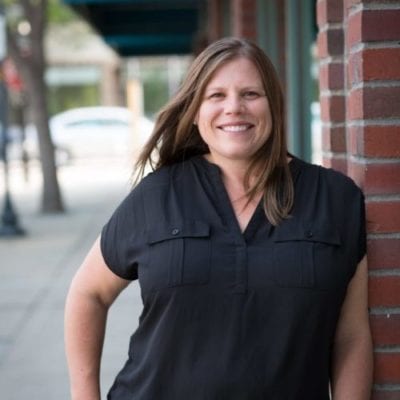Getting Meaningful and Actionable Plus-Delta Feedback for Improvement | 084
Welcome to Lean Leadership for Ops Managers, the podcast for leaders in Ops Management who want to spark improvement, foster engagement, and boost problem solving – AND still get their day job done. Here’s your host, Leadership Trainer, Lean Enthusiast, and Spy Thriller Junkie, Jamie V. Parker.
[00:00:29] When you’re doing an after action review or maybe you’re in kind of the check part of a like a large PDCA cycle or you’re getting feedback on a change that’s happening. How do you frame the conversation? Do you ever find a feedback session devolving into just like a complaint fest, right? It’s just doesn’t seem to be productive.
Or how about walking away from a feedback brainstorming with a whole bunch of things that other people need to improve, things that they need to do differently, but really not a lot of focus on what we the people in the room can do to improve the situation. Hmm.
Well, today I’m talking about evaluations, or sometimes people kind of use that word reflection. Right? So can I reflect or evaluate? Now I’m going to share one simple method for evaluation, probably one that you’ve heard of before, but I’m going to take it a step further and talk about how to frame it for meaningful feedback. And the one thing that is often missing from that traditional framework that when you add it on, it really makes a difference in improvement.
So first, I think we can all agree that evaluation or reflection is important. It’s the basis of how we learn, right? I mean, we talk about practice a lot and practice is critical to learning. We have to do something. We have to take action, we have to practice, but we also have to evaluate. So think about learning to play golf, for example, you have to go out and practice your swing.
[00:02:16] But if you don’t also evaluate as you practice, then there’s a really good chance that you’re just getting more reps in of a bad swing. You got that bad form going right? Think about it. Swinging the golf club a thousand times isn’t going to make your swing any better if you aren’t purposeful about improving components of your swing and evaluating how you’re doing.
So we have to evaluate and really, if you think about Continuous improvement evaluation is a critical piece of PDC, a plan do check act. It’s necessary to evaluate in order to improve. There are a lot of approaches or models or frameworks that we can use for evaluation, whether it’s our own personal evaluation, right? So for our own work, our own goals, or maybe we get together as a group or as a team and evaluate whatever it is that we’re working on. And there are different approaches and models and frameworks that we can use.
One common framework is the Plus Delta. Now, I actually love the delta approach. And even if I don’t ever use those words and call it a Plus Delta, I’m likely using the the foundation of it, the basic elements of it. But I want you to stay tuned because I know that you might have heard of the delta before. You might have done it before. But I want to just really make sure we talk about the framing of it and how to really make it effective in its most simplest form.
[00:03:57] I just want you to envision for a second think of a flip chart or a sheet of paper with two columns and in the left column, we capture our pluses. And in the right column, we capture our deltas. Now you don’t actually have to use a flip chart or a piece of paper, and you don’t have to use left and right columns. But I just want to give you a visual kind of let’s all start from the same page.
We’re talking about capturing pluses and capturing deltas. Now, when do you do a Plus Delta? Well, of course, you can do a Plus Delta at the conclusion of something, at the conclusion of an experiment or an action or a change initiative. But remember, you can also and should also use Plus Delta evaluations during experiments and actions and change initiatives.
In fact, you’re going to really be able to be more effective if you don’t wait until the very end. But instead, that we’re iterating throughout. One of my favorite ways to use a Plus Delta evaluation is actually during a change initiative where I will physically put a flip chart with a Plus Delta right in the area where the change is actually happening.
So let’s say we have new equipment coming in won’t put a flip chart, you know, and of course, a safe space not in the middle of the walkway or the or the walkway, but in a safe space, but right close to where that equipment is, we’re going to put a Plus Delta chart so that folks can capture the pluses and Delta’s in real time when they’re happening.
[00:05:29] I want to make it as easy as possible for people to capture that. Or maybe we have a workflow change. Same thing. Let’s look at that flip chart right out there, right where the change in workflow is happening so we can get that in real time. So that’s how you can think about. Plus Delta’s not just as an after action review type of activity, not just at the conclusion, but also during.
So let’s talk about Delta’s from a framing how do we frame a Plus Delta feedback method? Now, I don’t know where I first learned about Plus Deltas, I don’t know the first time I used it, I saw people do it. Honestly, it was probably at the conclusion of a meeting or a training or something where I first saw it. It seemed cool. So I started doing it right. Like, here we go. Let me emulate this make sense. But then I learned that I actually didn’t fully understand it.
So here’s the thing. Years ago, I have no idea how many years ago this was. I don’t know. I’m going to guess six, seven, maybe five. I don’t know how long. Years and years ago, but I was participating in a training with an industry, a job instruction class with Roger Bayless. And it was hosted by Gemba Academy.
[00:06:46] So it was this week long training. And every day we did a Plus Delta, right? So we didn’t wait till the end or doing this every day. Now, on the first day before we did it, Ron explained. Ron Pereira explained the Plus Delta and it was actually the first time that I had ever heard anyone explain it, so I had used it, or at least what I thought was using it right? I emulated. I had copied people. I was doing it. But this was the first time anyone had actually ever explained it.
As Ron was explaining this to me, I was like, Oh, I see now I get it now. And I really thought, like, Oh, I’m the only person in the world who doesn’t know this. Like, Hmm, well, let me just keep my mouth shut because I didn’t know any better. The thing is, though, you know, now, of course, every time I facilitate a Plus Delta, I’m always framing it, and I have done this with clients and groups and over and over and over again. Group after group, there are other people who haven’t heard this framing either.
I remember I had one client, the CEO of one of my client organizations, the first time that I did a Plus Delta with them and I did my friend. I explained it and he’s like, Oh, oh, all right, kind of like I did. He’s like, You know, I’ve done these things forever. I never really connected that I had never really heard that I didn’t get it.
[00:08:05] And so that’s why I want to make sure that I talk about that framing here. So here’s what I learned from Ron. This is how he explained to Plus Delta, he said. Of course, the plus is what’s going well or what’s working well, and that makes sense to us. It’s the plus, right? What are the pluses? What’s going well? What’s working well?
And then he said, but notice that we’re not doing a plus minus. So the right side isn’t what’s not going well or what’s not working. You know, usually when people think of reflection or evaluation, they think what’s working and what’s not working. But what we’re doing is a Plus Delta. And the Delta is a triangle symbol, right, so think of a triangle, and that is a symbol for Delta.
Well, what does it mean? We’ll go back to math class. Do you remember using the delta symbol in math class, ever? You remember what it represents? Well, the delta, that symbol in math, it represents the change. So if you think back to math class and on a graph or something, you’re thinking, OK, the change from point A to point B as an example is expressed as the delta in math.
And I’m like, Oh yeah, sure is. So when we asked for deltas, we actually want to know, what should we change, right? What should we change? And so the way Ron taught me this, this is what Tom Ron taught me that I didn’t I didn’t get right.
[00:09:42] He’s like the way we do this, and the phrase he taught me was could be better. If so, the plus is what’s working well. And the delta is could be better if. Now, that first day of T.Y. training, the training room was actually quite cold, so we were all wearing sweaters and taking breaks outside to warm up. So Ron used that as an example to help bring this home.
He said, You know, if you were giving a minus, what’s not working, you might say the room is too cold. But when you’re thinking about Delta’s, you might say that, well, it could be better if we turn the thermostat up. And now you have the difference instead of saying it’s too cold, which is like a kind of a complaint, potentially right. Here’s what’s wrong. This is what’s wrong. Somebody’s got fix it. It’s wrong, it’s too cold.
Instead, we’re providing an action, a change that we could do to make things better. And so this is how we frame a Plus Delta evaluation to get more constructive and meaningful feedback. And by the way, if you are struggling with an us versus them scenario, I hear that a lot, right? Well, they them, you can actually take this one step further, which is instead of just asking like could be better if or using the prompt for Delta could be better if instead you set, you take it to the next level and say, OK, it could be better if we right, or it could be better if I.
[00:11:26] So now it’s not just how things could be better, but I’ve added in some additional framing that focuses me on, you know, what’s in my span of influence. So it could be better if we blink and the blank is what people are filling in right now. I actually do this a lot in my own evaluations as I take it to that next step of could be better. If I. That way, I can focus on what I can do.
So as an example, I recently had a virtual session with a group of supervisors, and it didn’t go very well. I was actually pretty hot when I got out of the session, to be honest. So when I did my own evaluation because I always want to get better. So when I did my own evaluation where my brain initially went are things that could be better if they like, well, the things the manager’s manager could have done, the things the supervisors could have done.
But that’s really not good enough for improvement. I also need to make sure that I evaluate for my own improvement. So I then challenge myself to add that next step. Well, what could have been better if I? And that’s how I did a meaningful evaluation to recognize my own opportunities for improvement. Now, one caveat for you as you facilitate Plus Deltas, whether you’re just facilitating your own personal Plus Delta or facilitating for a group, remember that you’re not passing judgment on the deltas that are shared.
[00:12:59] This is an opportunity to get that feedback, to hear different perspectives, to allow people to feel heard or even individually for me to get that stuff out of my head. So in my scenario, I kind of just needed to get that junk out of my head so that I can move to more productive thoughts. So don’t judge, just allow the delta to occur. In some cases, I even have everyone write their deltas, you know, on Post-it notes that are added to the board anonymously so that we can have more of that safety to get that stuff out.
And know that sometimes deltas aren’t 100 percent grounded in facts, right? Sometimes they’re all the all that crazy stuff with perceptions and assumptions and biases all coming in and mixing in. But in that moment when I say it or write it, it feels true to me. And so you want to have that opportunity for those to come out now.
One more caveat I said one caveat I’m going to give you a second. One second caveat is make sure you do pluses. I actually most of the time like to start with pluses. And at least for me, when I’m doing my own evaluations, I always want to start with pluses, because if I don’t, then I will forget about them. So I typically will start and then kind of come back to them.
[00:14:21] So I start with my pluses. Then I go to my deltas and then I come back to my pluses. And that’s just my personality is that I I don’t often see the good in the positive. And so a lot of times with groups, I’ll do this the same way, right? And I’ll have them do the pluses first and then we’ll go to deltas. Sometimes, though, I do switch that up.
If I have a group where they are itching to tell me all the things that they went wrong, all the things that they could change, right? Sometimes I will have them go ahead and start with the Delta’s first because I just need them to get that out because they can’t see the pluses yet, right?
And so I’ve actually had situations where I’ve stopped. We’ve started with pluses and I’m like, You know what? Let’s stop. Let’s go do some deltas, OK, now let’s come back and talk about some pluses, because everything, even the pluses were getting framed as a delta.
And so, you know, you can you can play that by ear. Just make sure that you don’t forget to do the pluses. This is not an all delta evaluation. Do you want to do an evaluation and make it meaningful? You also have to know what’s working well, because that’s how you know what you need to do more of. Ok, now we talked about the basics of a Plus Delta.
[00:15:34] We talked about how to frame a Plus Delta activity for more meaningful, more helpful, more actionable feedback. But here’s my question. What’s the point of an evaluation? What’s the point of reflection? I was talking with a manager at a client organization not too long ago, and I made the comment that to me, the primary purpose of reflection or evaluation is to improve the future. All right.
We are looking at the past, right? We’re looking at the past, maybe sometimes the immediate present, but we’re doing that to try to improve something in the future because I can’t change the past, right? Like, I can’t change the past. So I’m looking at this and I’m evaluating what did happen so that I can prove it, improve what will happen. And that means that the typical Plus Delta activity is missing a step.
And that is this right, so now that I or now that we have heard and processed this feedback and then we have all of our Plus Deltas and we’ve processed them. Then we have to make some decisions. What will I do differently? What will we do differently? What will we change? What will we keep doing or what will we do more of? You know, just because a plus or a delta is shared, it doesn’t mean that you have to take action on it. In fact, most of them you don’t take action on. So you have to evaluate and think through all of these Plus Deltas and then make a decision on what action you will take.
[00:17:17] So it might be doing more of an activity that yields these pluses, or maybe you want to change something or maybe you want to stop something. This is the act in a pizza cycle. So I sometimes talk about this as what will we adopt? What will we adjust or what will we abandon? And once the decisions are made about what action you will take, what you will adopt, adjust or abandon, then you’re ready to figure out what’s the next step to help you do that?
So too often what I see are Plus Delta evaluations, they get started and they collect feedback and or maybe it’s an individual and you have great reflection, right? You’ve reflected. But then nothing happens with the list. Right, it’s like, oh, we did this reflection.
But it was just an exercise in sharing, it wasn’t an exercise in acting. And while that might be helpful, occasionally most of the time you’re going to want to take action or at least most of the time, I certainly want to take action because I’m trying to improve the future.
So remember that if you facilitate a Plus Delta, whether it’s for a group or for yourself, don’t forget to take it that next step and decide what action you want to take based on your + delta evaluation. Now, of course, the Plus Delta is only one framework for evaluation, one framework for reflection. It is not the right framework for every situation you have to think about.
[00:19:01] What do you want to learn from the evaluation? But I will say my personal opinion is that a Plus Delta can often be a great start. All right. I think I told you before that, sometimes I don’t even use the word Plus Delta.
But I’m usually using that basic idea, right, even when I’m doing kind of more of a deeper reflection, even when I’m kind of digging in more into who I am and what I believe and how my thoughts generate feelings and all the thought work that I’ve talked about on the podcast before is that I was still typically start with a Plus Delta first and then bring in the thought model in the deeper reflection.
Now one last thing about some Plus Deltas when I work with clients and I’m talking about Plus Deltas or when facilitating or I’m helping them facilitate whatever that looks like. I always provide the framing of what we mean by that delta. The framing that I provided you today. Even if it’s something a team that I’ve worked with before, I might do a shortened version of it, or I might just do a reminder.
But I always want to make sure I’m I’m doing that framing. I don’t just do the framing once and then never talk about it again, even if we’ve done this a dozen times. I’m still going to say now, remember, this is what a delta is because I want to make sure we’re all coming in with that framing.
[00:20:24] And I will tell you that you can actually shift your culture through this, so I have one client just as an example where I facilitated Plus Delta conversations multiple times with their operations management teams. And then what’s happened is different. Leaders have integrated that same framework and language into their evaluations for lots of other things, things I’m not even a part of.
So what’s happening as a result is the team, the leaders, as well as their team members, are becoming more comfortable, giving constructive feedback. They’re becoming more capable, framing feedback in an actionable manner. They’re becoming better at looking internally to recognize their own opportunities for improvement, and they’re becoming better at taking action so that that Plus Delta evaluation isn’t just words that are spoken or written.
It’s not just a check the box activity, it’s an evaluation of the past to make things better in the future. All right. Let’s talk about your next step. So what model, approach or framework do you like to use for reflection or for the word I like to use for evaluation? Why do you like to use that model? Why do you let you use that framework or approach? What are the benefits? What gaps might exist in how you use that framework today? And what action might you take to more effectively facilitate evaluation for yourself, personally and for your team? Think on that, and that’s your next step. Until next time.














